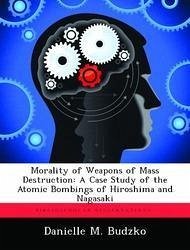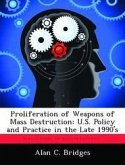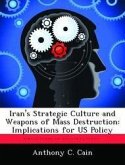While widespread until the 1990's, discussions on the morality of weapons of mass destruction have rapidly declined in recent years. However, nuclear weapons remain an issue in U.S. national security and a key player in international relations, providing a nation with an elevated status and powerful deterrent against external aggression. This paper analyzes Just War Theory and applies the criteria to evaluate the morality of modern weapons of mass destruction in hypothetical situations. The criteria are also applied to the sole employment of a nuclear bomb in warfare, the U.S. against Japan in World War II, to determine if this was a moral action. Acknowledging war is inevitable in civilizations, Just War Theory provides structure to moral arguments in the form of jus ad bellum (just reason for going to way), jus in bello (just actions in war), and jus post bellum (justice after war). Just war criteria were applied to situations in which weapons of mass destruction (chemical, biological, and nuclear) might be used in warfare.
Hinweis: Dieser Artikel kann nur an eine deutsche Lieferadresse ausgeliefert werden.
Hinweis: Dieser Artikel kann nur an eine deutsche Lieferadresse ausgeliefert werden.








